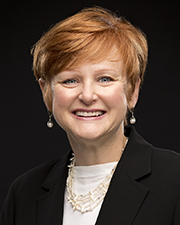Penn GSE Experts on the Future of Higher Education Under a Trump Administration
On the day after the 2016 Presidential election, four faculty members from Penn GSE's top-ranked Higher Education division offer insight.
Media Inquiries: Jeff Frantz (215) 898-3269/frantzj@upenn.edu
*Note for TV and radio: The University of Pennsylvania has an on-campus ISDN line and ready access to a satellite uplink facility with live-shot capability.
*Note for TV and radio: The University of Pennsylvania has an on-campus ISDN line and ready access to a satellite uplink facility with live-shot capability.

We've heard from voters. Now it's time for state and institutional leaders — who make many of the choices that affect the real cost of college — to listen. The states must address the long term funding policies to ensure that higher education is affordable for all hard-working and motivated students. Institutions must do their part too. It is imperative that they find ways to lower the real costs of education. Only the renewal of a public compact based on principles of shared responsibility can guarantee opportunity – and hope – for millions of young people who should be served by educational and training opportunities beyond high school.
Credentials:
- Director of the Institute for Research on Higher Education at the University of Pennsylvania Graduate School of Education.
- Lead author of the 2016 College Affordability Diagnosis
- An expert on issues of college access and affordability who has advised state and federal policymakers.

Credentials:
- Director of the Center for Minority Serving Institutions at the University of Pennsylvania Graduate School of Education.
- A historian of higher education, Gasman works with MSIs — Historically Black Colleges and Universities, Hispanic Serving Institutions, Tribal Colleges, and Asian-American and Pacific Islander Serving Institutions — on educational leadership, philanthropy, and recruitment.

Colleges and universities pride themselves in being places of rationality and ideals. The historic mission of our colleges and universities is building a better society and a stronger democracy. We provide experiences in and out of the classroom that allow our students to grapple with the difficult issues facing society. We offer our graduates the promise of a better tomorrow because of what they have learned. But there are communities not far away where people feel left behind. The fault line of this election emerged between those who feel like they have a future and those who feel like they don’t. Colleges and universities need to continue to find ways to reach out to neighboring communities and work in solidarity with them to address the challenges they face. We need to be a part of a wider effort to bring possibilities to more people as we work together to create a better and more-just society.
Credentials:
- Penn GSE Associate Dean for Academic Affairs.
- Executive Director of Penn GSE’s Alliance for Higher Education and Democracy (PennAHEAD).

As Trump prepares to take office, policymakers and institutional leaders from around the country should push a Trump administration to:
- Use federal policy to incentivize state governments to provide financial support to their public higher education institutions, so as to improve college affordability and increase access and completion, while also maintaining quality.
- Reduce the financial barriers to college enrollment and completion for students from low-income families. Target financial aid and other financial resources to reducing the costs of college for students who would not otherwise attend. Recognize that the costs of college include more than tuition and fees but also books and supplies, living expenses, transportation, childcare, foregone earnings, and more.
- Reduce the riskiness of student loans by expanding access to and use of income-based repayment, but without encouraging students to over-borrow or institutions to raise prices.
Credentials:
- Co-founder of Penn GSE’s Alliance for Higher Education and Democracy (PennAHEAD).
- Chair of Penn GSE’s Higher Education Division.
- In 2016, Perna has published reports examining higher education equity in the US and College Promise programs.
